THREE CATEGORIES OF DRUG INVOLVEMENT
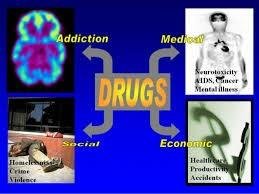
Source : https://goo.gl/images/kR4sEY
We will be meeting three different groups of young people involved in the drug scene :
(1) USERS ;
(2) ABUSERS ;
(3) ADDICTS.
These three groups are distinct yet closely related.
We must not mistakenly treat the user as an addict, nor should we treat the addict as a user. There is a difference between drug use, drug abuse, and drug addiction. Yet, the difference is often a very thin line. It is important to know where one type of drug involvement begins and ends, and where the second type takes up.
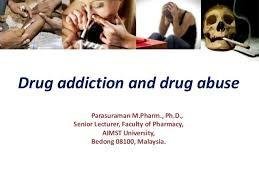
Source : https://goo.gl/images/ma4Mm6
The drug user and the drug addict may be compared with the social drinker and the alcoholic. And the drug abuser may be compared with the problem drinker. The drug user uses the drug, but the drug uses the drug addict. The user can control the amount of drugs he takes, the addict cannot control himself or the drug. The user is an experimenter, the abuser is one who finds he has an ever increasing need to experience the high or the euphoria it gives him, and the addict is one who seeks total escape from reality.
Addiction has been defined as a state of periodic or chronic intoxication produced by the repeated consumption of a drug and involves tolerance, psychological dependence, usually physical dependence, and an overwhelming compulsion to continue using the drug which detrimentally affects both the individual and society. The World Health Organization (WHO) recommended that the term addiction be replaced by a single and more general term "drug dependence". They described drug dependence as a " state arising from repeated administration of a drug on a periodic or continuous basis".
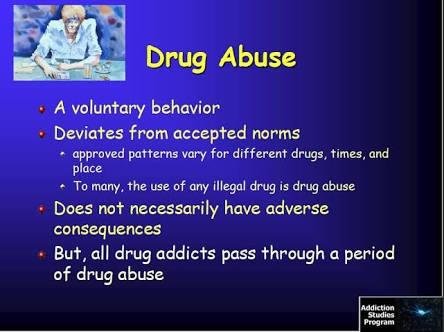
Source : https://goo.gl/images/RN1t2Z
Programmes to help the user, abusers and addicts are more effective if they deal with each group separately. Mixing users and abusers with the addicts may result in the addicts' influencing the others; users and abusers often look up to addicts and go on to more serious drugs to prove they know "where it's at" in the hard drug scene. Younger drug users learn about other drugs and the "tricks of the trade" from the more experienced. Addicts are proud of their drug knowledge and will show it off to others, in order to compete with their drug addict peer.
However, once the addict experience a genuine conversation to Christ, he can have a most effective influence on the users and abusers, and on those who have never tried drugs but are facing the temptation to do so. Youngsters will listen to one who has been there. In Teen Challenge work we see the effectiveness of converted addicts who give their testimonies at church, high school assembly programmes and relate the problems they encountered through drugs.
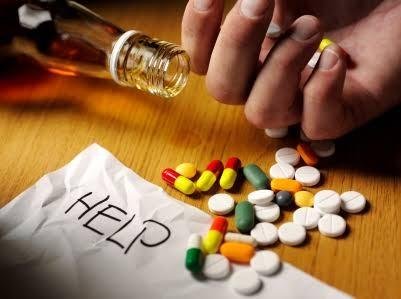
Source : https://goo.gl/images/CXv9GB
The whole drug scene is often glamorously painted as an innocent "in" way of life. Many young people feel they are being left out if they do not indulge. Drug use has become fashionable. One of the reason why accurate figures on drug usage especially marijuana are hard to obtain is that many kids claim to have used it when they have not. This is because they think "everybody is doing it". Teens get a one sided view. They are told about the supposed harmlessness and the non-addictive aspects of pot, and about the mild high it causes. They are told that it is no worse than a cocktail. That side is only the street side of the story, the party atmosphere side of the drug question.
Young people need to hear and see the darker side. They need to be told the facts about what drugs will do and will not do. They can't be scared into staying off drugs, however.
After one school assembly, a young girl came to our group and said to us, " Thanks for coming. You told us about one side of the drug probkem that the other kids never told us. Now I am in a better position to make the right decision about whether I will use drugs or not.
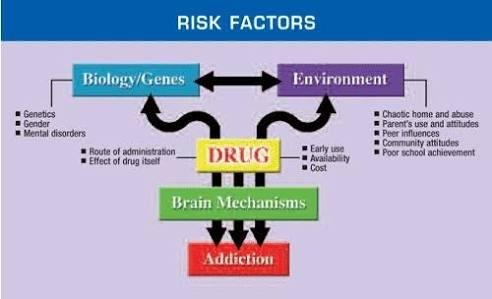
Source : https://goo.gl/images/oAvVLW
Young people who think they never become hooked on drugs are often sincere. But once drugs go into the body and mind, will power, reason, good sense, and sound judgement all go out. We tell young people, " I believe you when you take drugs, you are in a certain atmosphere ( the atmosphere of drug use has become just as important as the drug being used) and you become a different person in that atmosphere than you were when you first walked through the door."
A further danger is that a person does not know just how he is going to react to a drug. For example, when using marijuana the reaction can be different on any occasion. The initial effect of pot is often nil. First time smokers usually get sick, some report no effect after several uses, some no effect even after ten times. However, eventually, the user will begin to experience mild sensations and perhaps get stoned.
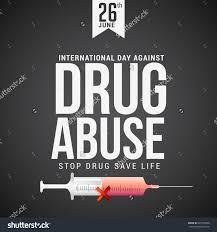
Source : https://goo.gl/images/qhbz4q
The effects come on slowly and smoothly. But after repeated use, and if the dosage happens to be stronger, the effect can be frightening. Marijuana is smoked, sniffed, or ingested. The mental effects include a feeling of euphoria, a dreamy sensation, or exultation. One user said, " I felt like the world had stopped and I had gotten off, I was in the twilight zone." In this state there is a free flowing of ideas ( good or bad, or both): senses of time, distance, vision, and hearing are heightened.
Hallucinations may result from large doses. Dome users are talkative, some giggle, some act silly, others become boisterous, moody, and drowsy. When such effect occur in an atmosphere of rock music, psychedelic lights and the gaiety of a crowd the net result may be a stoned young lady or man who has no ability to resist other drugs or large doses of the same drug.
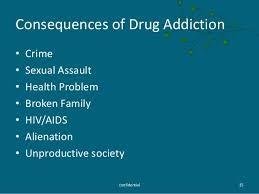
Source : https://goo.gl/images/MnHThK
The step up or down from the marijuana culture may never happen, yet it does more often than the user will admit and more often than any authority will ever be able to know. When other drug usage takes place, it may be LSD ( acid), a stimulant such as amphetamine, or methamphetamine (speed), a depressant or seductive (goof balls), or the direction may lead to heroin (horse).
The depressants cause intoxication similar to that experienced by the alcoholic. The abuser also exhibits slurred speech, his reactions are sluggish, he may be emotionally erratic and easily moved to tears or even laughter. Or he may become very angry. One client became upset with me when I refuse to interview him because he was "goofing" so badly. "I'm not high," he kept insisting. He became very disruptive and created a scene in front of others. Then he started to laugh.

Source : https://goo.gl/images/MnHThK
Those on stimulants become talkative, excitable, and noticeably restless. One young man said, "When I take " ups" ( a stimulant drug) I like to walk and walk and walk." Others experience insomnia, heavy perspiration, or tremors of the hands.
The LSD user experiences changes in perception, thoight, mood, and activity. Time seems to slow down or even stop. There is also sometimes a sense of being detached from one's body. One user said, " I kept feeling like my fingers were falling off." The user may experience a free flow of weird or bizarre ideas including feelings of persecution. Trivial events take on unusual significance and importance. " A button can appear to be the most important image you have ever seen," said another LSD tripster.
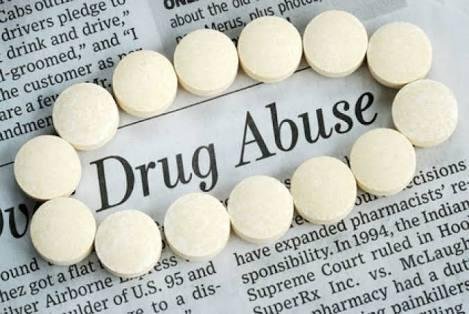
Source : https://goo.gl/images/x47ro1
After a number of hours the effects of LSD begin to wear off. Sometimes fatigue, tension, and recurrent hallucinations (flashbacks) may continue long after ingestion of the drug. Psychological changes brought on by the drug may continue for indefinite periods.
The counsellor who meets on an individual basis those involved in drugs will have to determine the extent of the person's drug problem. ( If the person is only a user, that may not pose too great a problem in the counselling process.) If abuse or addiction are involved, then the counsellor's task is to help the person to overcome both the addiction to the drugs and the reasons for it. The addict will first need help and strength to get clean from the drug, physically, and then to face up to the problem of overcoming the emotional and spiritual needs that led to his addiction.
REFERENCES
Wilderson, David and Don (1971). The Untapped Generation. Zondervan Publishing House; Grand Rapids, Michigan.
Access. Ewu.edu/…..education/substance-use-and-abuse/drug-facts.xml.
Arterburn, Stephen & Burns, Jim (1989). Drug-Proof Your Kids; A Prevention Guide & An Intervention Plan. Pomona, California.
Braathen, Stine H (2008). Substance Use and Abuse and its Implications in a Malawian Context- Pilot Project 1. SINTEF Health Report; Oslo, Norway.